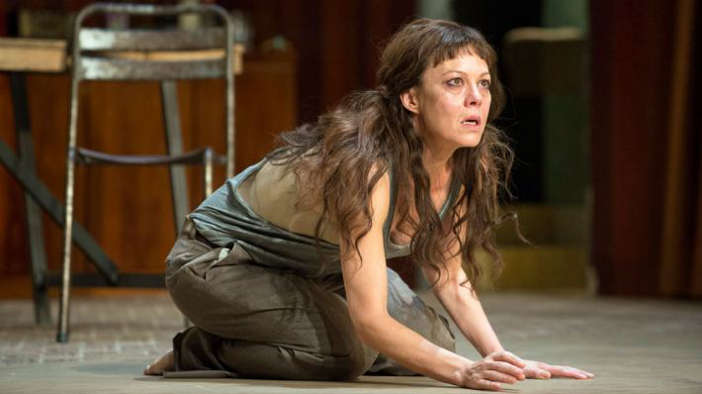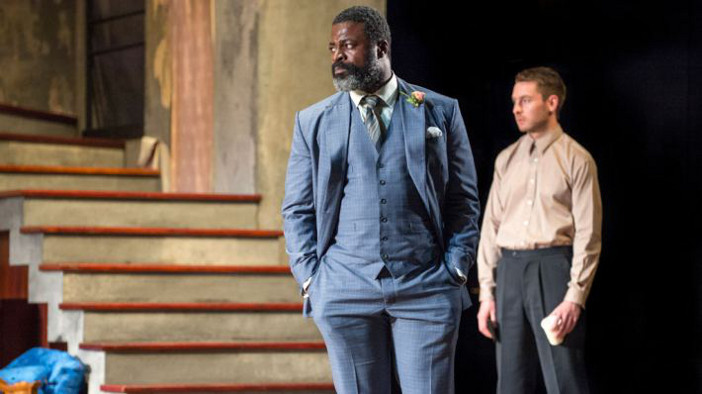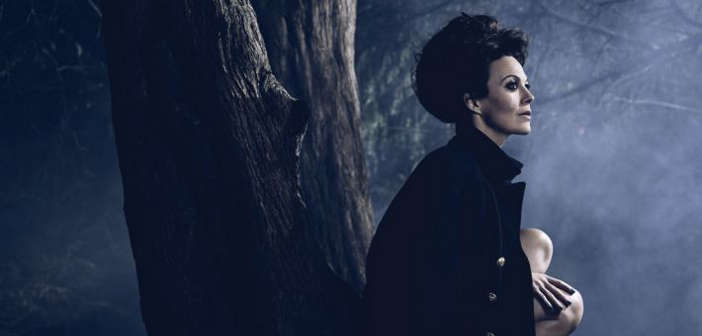Staging Greek tragedy in the 21st century is often a difficult task. The formal aspects of the plays – the Chorus and the deus ex machine, to name but two – often present a challenge for audiences more accustomed to naturalistic presentations of drama, and often their interest (or lack of it) comes in the form of seeing what an able director and cast can do with the text. In Carrie Cracknell’s excellent new staging of Medea, she is served beautifully by the unparalleled Helen McCrory, an actress who can find nuance and depth in the phone book, let alone Euripides’ horrific and gut-wrenching work.
The story is simplicity itself. Medea is the former wife of Jason (of Argonauts fame), but she is to be spurned in favour of the more socially acceptable Kreusa, daughter of the ruler Kreon. Medea, a woman scorned, plans a bloody and all-consuming revenge on all those that she feel has wronged her. Killing Kreusa is simple enough – a poisoned wedding dress will do the trick – but Jason deserves a fate infinitely worse than death. And they have two children together…

The innate grimness of a play like Medea can only partially be compensated for by the brilliance of the staging, but nonetheless Cracknell, who did an equally excellent revival of A Doll’s House at the Young Vic in 2012, comes to the Olivier with bold ideas and a fresh sensibility. She’s aided immensely by Ben Power’s accessible, colloquial translation, Tom Scutt’s split-level set-design and the hugely effective score by Alison Goldfrapp and Will Gregory which channels their interest in haunting cinematic soundscapes into something visceral and driving. There is the odd touch that I wasn’t convinced by – having an all-female Chorus works brilliantly, and their first appearance, parading out of the top level of the set in sync to the music, is striking, but some of the choreographed dancing and twitching might strike audiences as a bit much – but boldness in the service of a vision such as this has to be commended.
The performances are excellent throughout. Danny Sapani offers a mixture of callousness and pomposity as Jason, preening and arrogant and too short-sighted to see the dangers ahead of him. The superb Dominic Rowan (alumnus of A Doll’s House) is only on stage relatively briefly as Medea’s sole remaining ally, Aegeus, who offers her sanctuary in Athens, but he leaves a warm impression and brings some much-needed humanity to what is otherwise a dark night of the soul.

McCrory should start clearing space for the inevitable sack-full of awards not just on her mantelpiece but anywhere that she has space. Rather than playing Medea as a vengeance-seeking and implacable force of nature, she remembers that she is a human being, bringing near-unbearable poignancy and vulnerability to the protagonist, and meaning that, like the original audience, her plight inspires both pity and terror in the audience. At the end of this short, immeasurably powerful evening, I tried to applaud with everyone else, but found it hard to move my hands; I then realised that I’d been gripping the seat with such violence that they were numb. With this and The Crucible at the Old Vic, tragedy has seldom been in a better state in London.
Medea at the National Theatre runs until 4th September 2014. Showing as part of the Travelex season, with seats from £15, and as part of the NT live season. For more information and tickets, visit the website.




